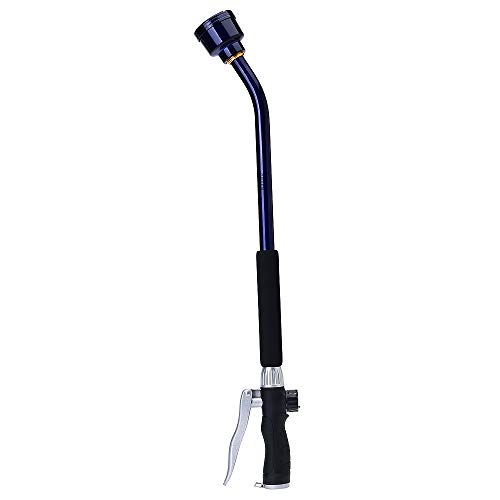raised bed gardening for beginners
Get our full guide on raised bed gardening for beginners so you can begin using this favorite approach to growing vegetables in your own backyard. We’ll cover everything you need to know, from setup to planting and finally closing up your garden for winter.
Our Gardening 101 tips are broken down into easy steps so you can incorporate them no matter how busy you are. Bookmark this page as an easier way to garden and get your hands back in the soil this spring.
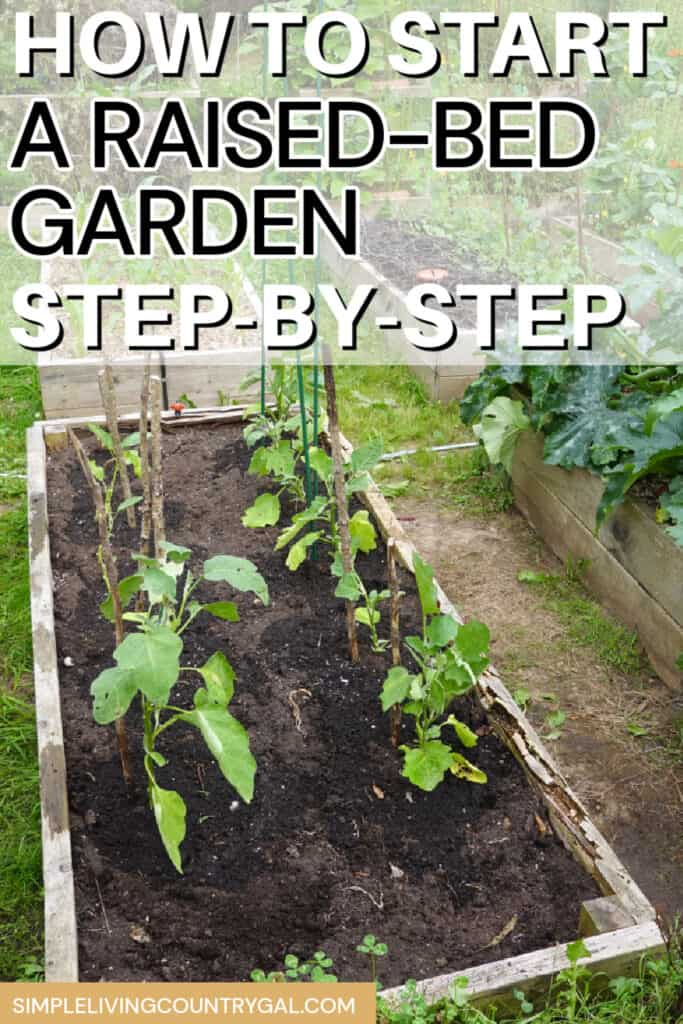
Have you been dreaming of growing your own fresh food, but setting up a traditional garden isn’t in the cards this year? This is me every year as I get older. My back no longer allows me to work as I used to so I am always on the lookout for an easier way to do things. Whether that be cleaning my home, raising chickens, or growing a vegetable garden.
Raised bed gardening checks all the boxes allowing you to grow all the food you love without taking all your time and energy to do so.
What is Raised Bed Gardening?
Raised bed gardening is a method of growing food that uses a material to frame out a garden bed that contains the soiled needed to grow the plants inside. These beds are constructed on top of the ground eliminating the need of sod removal, rocks, or amending of less than optimal soil.
Raised beds are framed in using any materials with the most common being wood, metal, or cement block. This type of gardening is an easy way to grow food in a small area allowing you to maximize the space you have available.
Raised beds can fit any budget which is another reason why it is so popular for anyone wanting to learn how to start a backyard garden. If you are tight on funds, you can use materials you already.
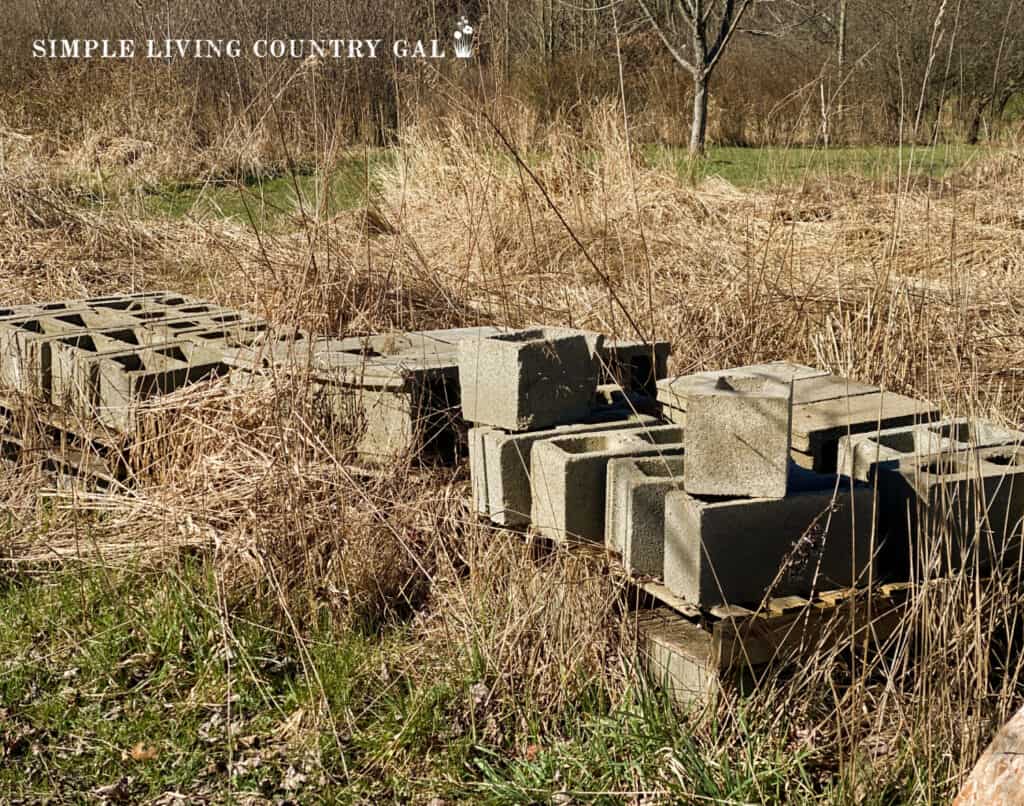
The Advantages of Raised Bed Gardening
There are many reasons why this way of gardening is becoming so popular.
- Better drainage. This is especially important if you have thick clay soil where you live.
- Better soil. Since you are bringing in soil, you have control over the quality.
- Fully customizable. Raised beds can be built to any size and height, reducing the need to bend over or garden on your knees.
- Longer growing season. Since the soil tends to warm up more quickly in a raised bed, you can get seeds into the ground earlier.
- Raised beds are perfect for square-foot gardening, meaning you can plant more and grow more in a compact space. We will talk more on this in a bit.
- Looks better. Raised beds give a more organized look to a backyard garden setup.
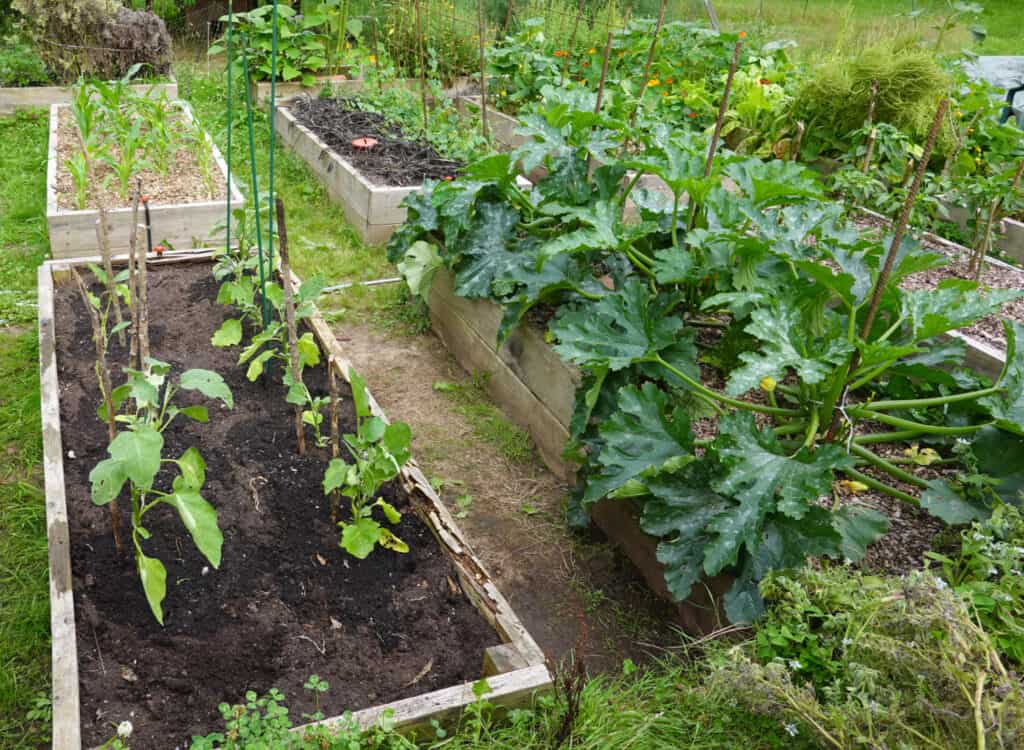
Pros of Raised Beds
If you are short on time, live with minimal yard space, or have physical limitations, raised bed garden setups are a great solution.
Quick to setup
Compared to digging a new garden bed in your backyard, raised bed gardens can be setup quickly. The most work needed is the construction of the walls, but you can even skip this step by purchasing a kit.
Easier Physically
Once the bed is made, there will be less strain when planting and maintaining. The reason for this is you can customize the sides to be as high as you need them to be, even high enough to allow you to sit on a stool to plant.
More efficient
Raised beds have good quality soil and great drainage, allowing you to plant more in a smaller space.
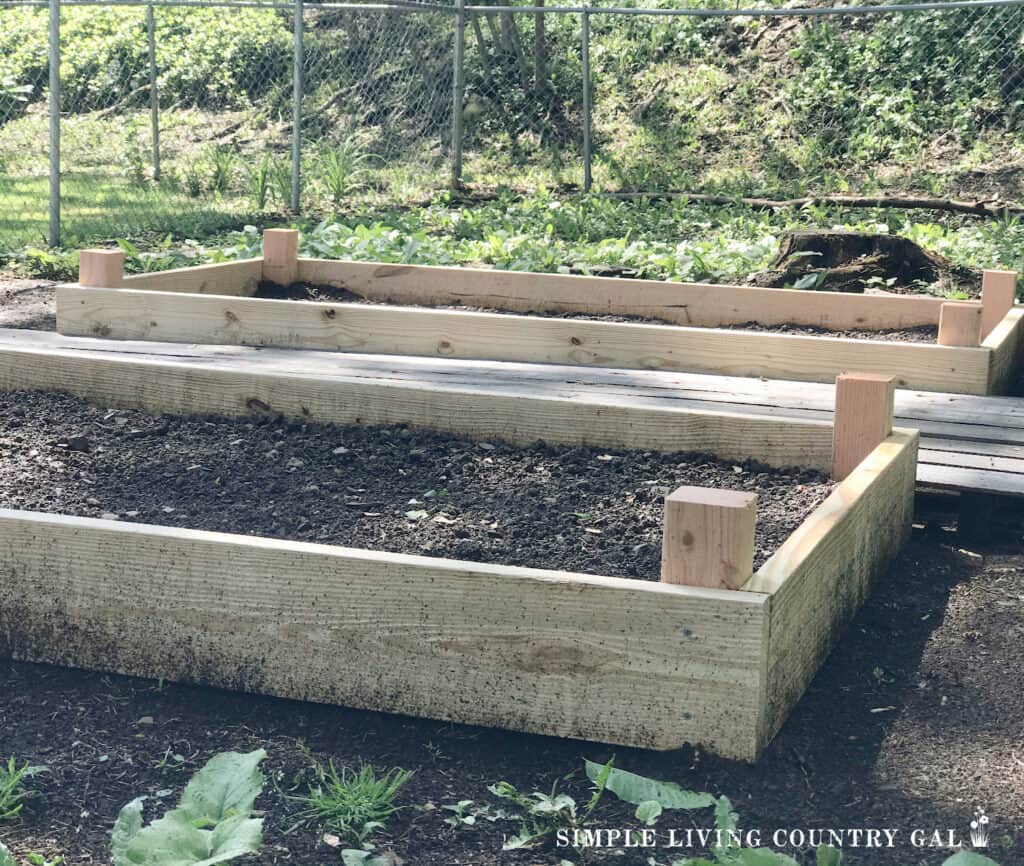
Cons of Raised Beds
There is one downfall to using raised beds and that is the cost.
More expensive
On the downside, the supplies needed to DIY a bed or the cost of a ready-to-go kit are more expensive than a traditional setup.
Having a Plan
Planning is an important part of gardening and knowing how big you eventually want to go will better help you to choose the best spot for your first setup.
The Number and Size of Beds
Decide how many beds you need and what dimensions they should be to fit your space. Take into account what you plan to grow as well as the type of plants. Some plants will need more space to grow than others and you will want to consider that as well. So, for example, tomatoes will need less space for growing than pumpkins or watermelon.
Protection
Determine if you’ll need to protect your garden from wildlife and if so, how you will do that. Some fences will need more space than others.
Pathways
If you want to have pathways in between your beds for easier access, this will need to be included in your overall plans as well. Choosing the Perfect Spot for Your Raised Bed
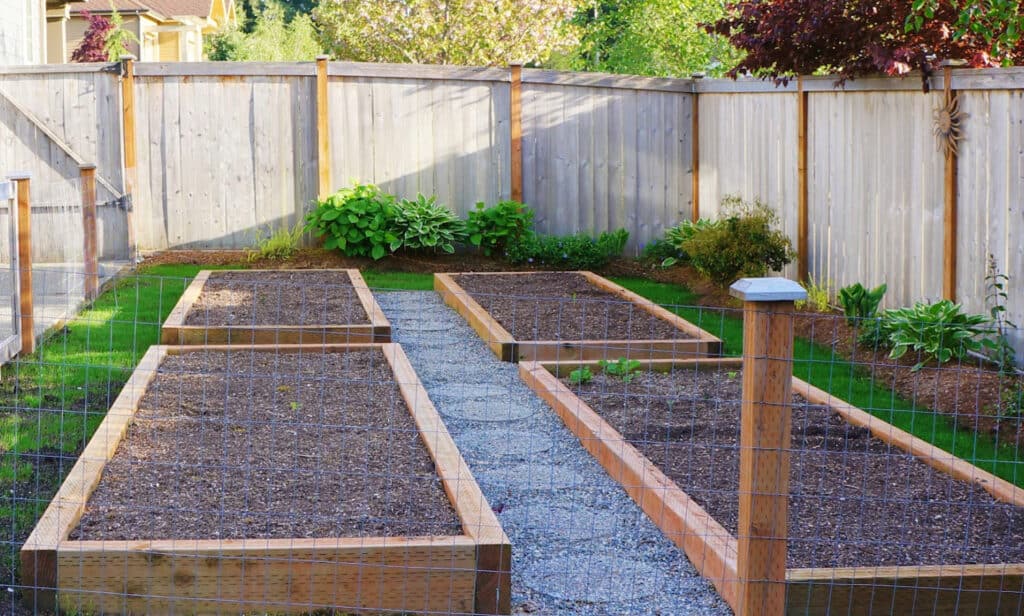
Sunlight
Most vegetables need full sun, which means at least 6 hours of direct sunlight each day. Be sure to pick a spot that meets these needs. It is best to check your property a few times throughout the day to see how the sun is in the morning, afternoon, and evening. This will give you a more accurate account to the sun in that area.
Water
If you can, keep your beds near to your home so it is easier for you to water your plants. If this is not an option you can setup a few rain barrels to collect water giving you a source nearby.
GREEN MOUNT Watering Wand, 24 Inches Sprayer Wand with Superior Stainless Head, Perfect for Hanging Baskets, Plants, Flowers, Shrubs, Garden and Lawn




How to DIY a Raised Bed Garden
Creating your own raised bed can be more cost-effective and is easier to do than you may realize.
Supplies You’ll Need
The main supplies you will need is the materials for framing in each bed. The material you decide to use will also determine what tools you will need to construct. If you choose to use wood for example you will also need hardware, a drill or hammer, and a brace or corner posts. If you instead use cement block all you will need is a helper with a good strong back.
- Lumber
- Logs
- Heavy Branches
- Bricks
- Cement Block
- Metal
Step-by-Step Guide to Building a Raised Bed Garden using wood
- Measure and cut your lumber to the lengths you need for the size bed you want to have.
- Screw the pieces together to form a box.
- Attach corner braces for stability, especially for taller beds.
- Level the ground where the bed will be placed.
- Include corner posts if needed.
- Fill the bed with compostable materials, compost, and finally soil.
Options for Purchasing Raised Beds
If you’d rather skip the DIY route, many garden and home improvement stores offer a variety of raised bed kits made from materials like metal, cedar, or composite.
DERYONI Galvanized Raised Garden Bed Outdoor 6x3x1ft,Raised Beds for Gardening Vegetables,Flowers,Fruits,Metal Raised Planter Box for Fruits Herbs,Vego Planter Raised Beds


Preparing Your Raised Bed for Planting
Before your seeds or seedlings can be planted, there are a few steps you will need to do first.
Filling the bed
Rather than filling each bed with soil, which can be costly, you can use organic compostable filler. Things like like cardboard, leaves, branches, peat moss, manure, straw, and topsoil are all great options. This is similar to “lasagna gardening” a method gardeners use to enrich their soil.
More on Lasagna Gardening:
Choosing the Right Soil
The soil in your raised bed needs to be light and fertile, with a texture that allows for good drainage. You can find some great options at your local nursery or mulching company.
Don’t Forget the Compost
Whenever you grow anything, compost should be a part. Compost is a gardeners friend because it not only provides additional nutrients but also helps turn bad soil into a good base for growing plants. If you do not have a compost area in your backyard, you may want to consider adding one this year. Read: Backyard Garden Compost Setup here!
VIVOSUN Outdoor Tumbling Composter Dual Rotating Batch Compost Bin, 43 Gallon Black Door


Planting 101 for Your Raised Bed
When the bed is ready, it’s time to get planting. Here’s what you need to know.
Seed and Plant Spacing
Follow the instructions on your seed packets or plant tags. Remember, you can grow more in a raised bed because of the better soil and better drainage. This means you can plant your seeds and seedlings closer than what is recommended. I like to use the measurements as a guide to start and experimenting with distances each year.
Keep notes of spacing so you can find the best distance and use that answer year after year.
Square Foot Gardening
Square foot gardening is a way of planting and growing that focuses on maximize space efficiently. What you do is divide your raised bed into one-foot squares and treating each square as a garden plot.
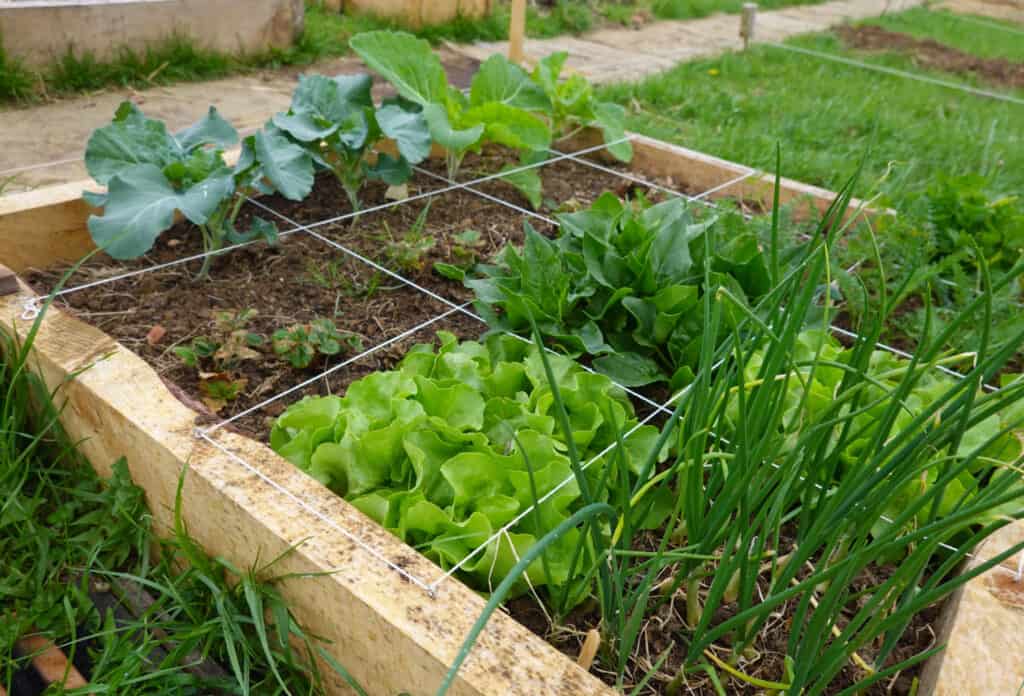
The Best Plants for Your Raised Bed
While nearly any plant can thrive in a raised bed, some do better than others. Vegetables like tomatoes, peppers, lettuce, radishes, and herbs are all great choices.
Plant Care in a Raised Bed
How you care for your plants in a raised bed is similar to a traditional garden with a few differences.
Correct Watering
Raised bed gardens may require more frequent watering than traditional gardens because there is such good drainage. Check the moisture level often by sticking your finger into the ground to about one inch. If the soil is dry that is your sign to water. If it is wet you will want to water less and if it is damp your soil is good.
Weeding and Pests
Regular weeding is necessary to allow your plants to grow without having to compete with weeds for sun, water, and nutrients in the soil. As with any garden, you will want to watch for signs of pests or disease so you can quickly amend any issues before they get out of hand.
How do you check for pests on vegetable plants?
The most obvious sign of pest issue is the visual sign of the actual pest but this isn’t always the best way. Other clues to look for is discoloration of any leaves, bites out of leaves, or eggs on the underside of the plant’s leaves.
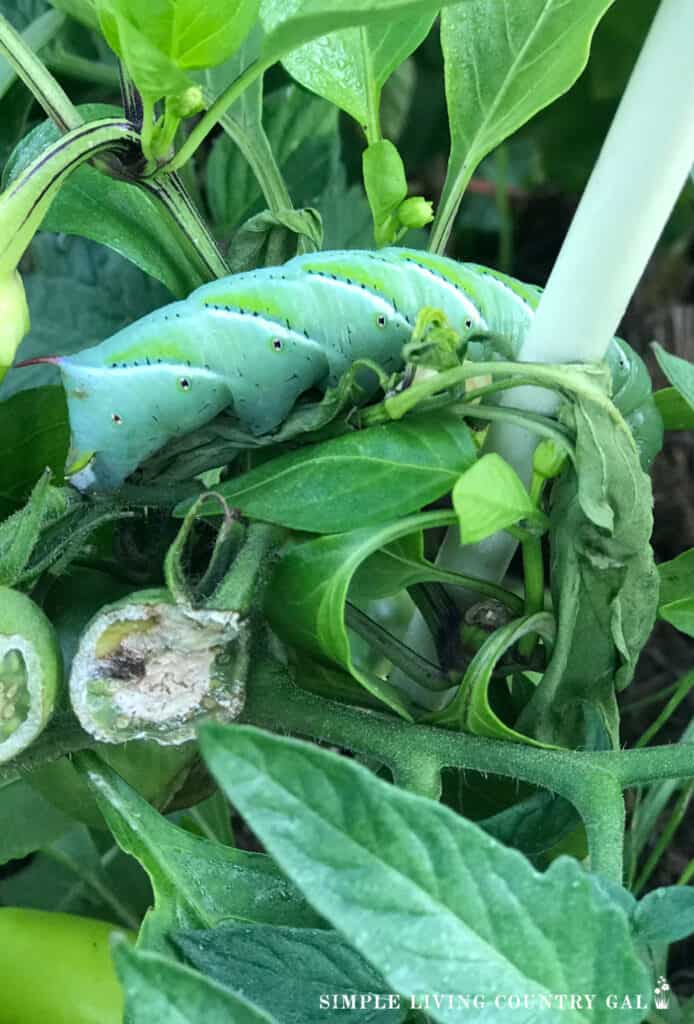
Fall Maintenance for Your Raised Bed
Closing up a garden in the fall is a good way to ensure your raised beds stay healthy along with the soil.
Closing Up
Remove summer plants and leftover weeds from the bed. Add in compost, mulched leaves, or hay and allow to sit over the winter. Fall is a great time to plant garlic allowing it to start it’s growth then hibernate over winter to begin growing again in the spring.
Protect Perennials
If you have perennial plants, such as Asparagus, ensure they’re well-mulched and protected from frost to ensure a healthy return in the spring.
Soil Prep
Fall is the best time to add amendments to your soil giving it plenty of time to break down and work it’s magic over the winter months.
Growing veggies and fruits using raised beds is a great way to set up a healthy organic area for growing your food. Bookmark this guide on raised bed gardening for beginners so you can refer to it whenever you area ready to add another bed to your backyard setup.

